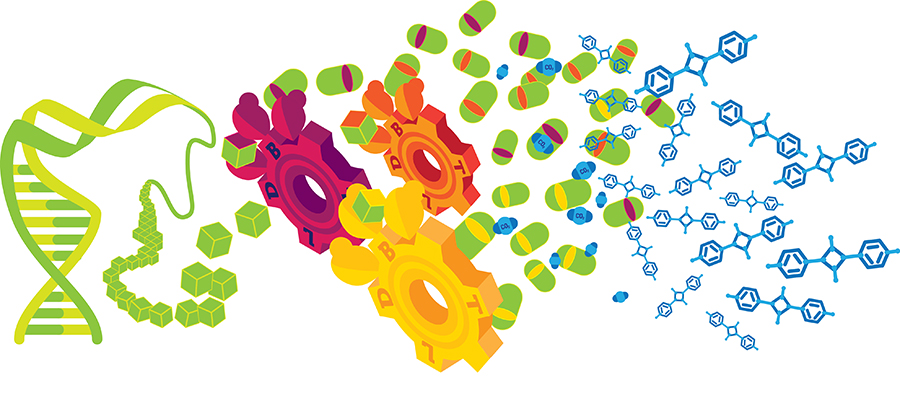
An interdisciplinary, UW-led team of synthetic biologists will embark on a 5-year, $15 million project to engineer microbial genomes that transform CO2 into high-value chemicals.
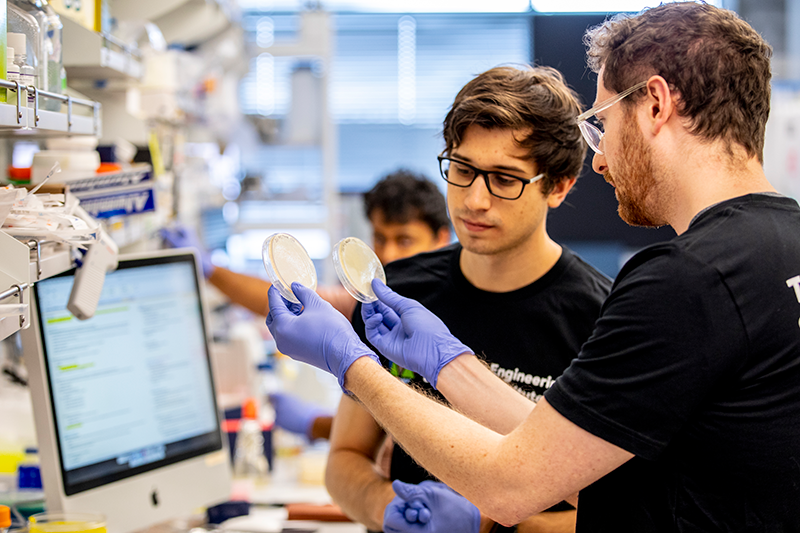
Two recent molecular engineering graduates launched a new startup, Wayfinder Biosciences, to commercialize their revolutionary platform to design RNA molecules that can be used to advance everything from sustainable biomanufacturing to targeted CRISPR therapies.
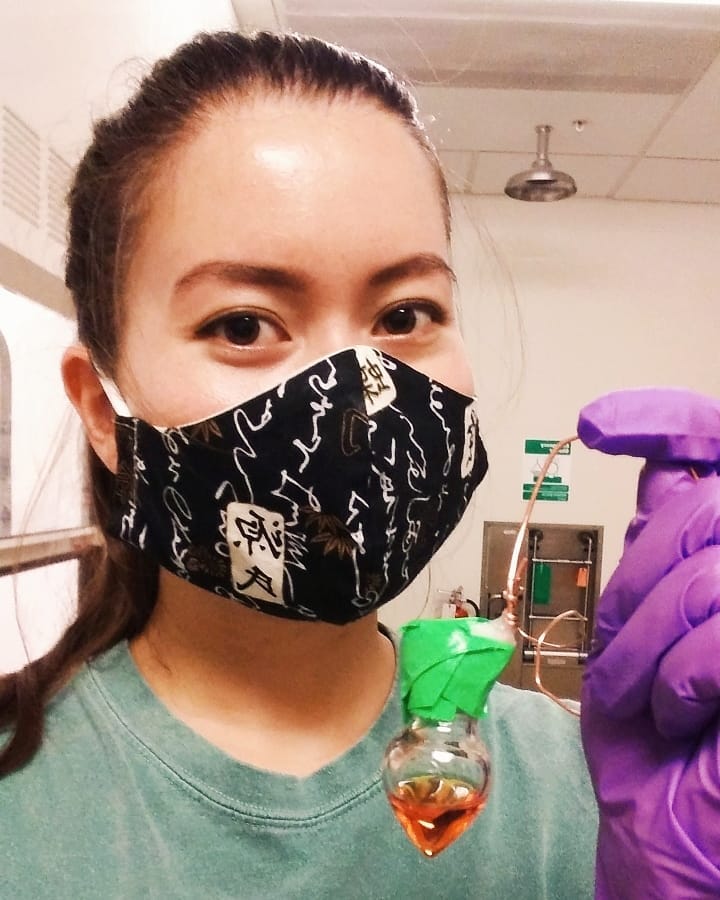
Ayumi Pottenger never planned to study engineering. Here, the third-year molecular engineering (MolE) Ph.D. student reflects on what drew her to the program and where she's headed next.
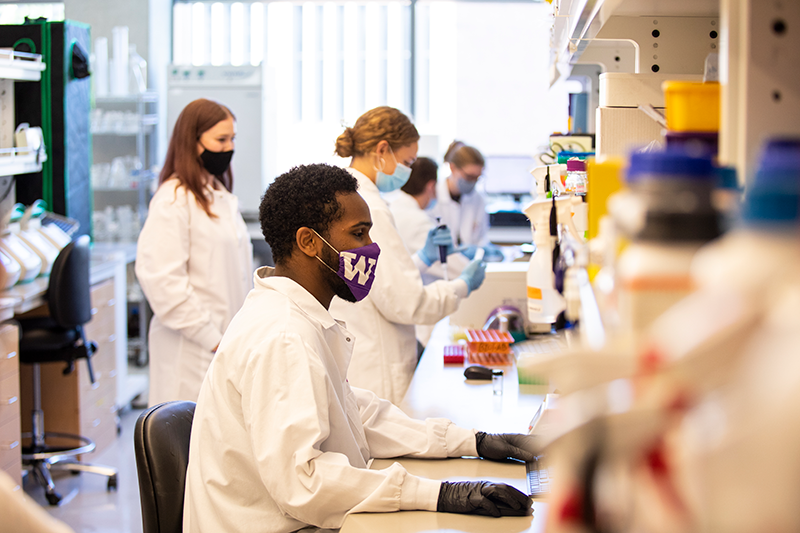
The UW's Biofabrication Center, a unique facility dedicated to enabling the rapid design, construction and testing of genetically reprogrammed organisms, is partnering with Agilent Technologies in pursuit of automated, reproducible research.
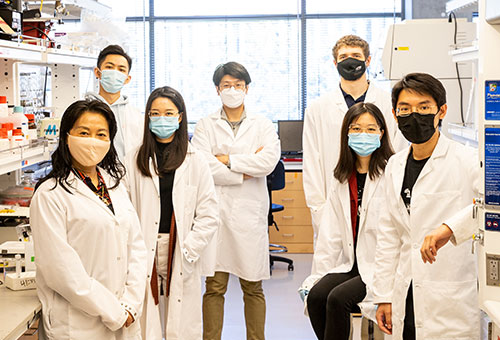
Miqin Zhang is working to improve cancer treatment with nanoparticles made from the same material found in crustacean shells.
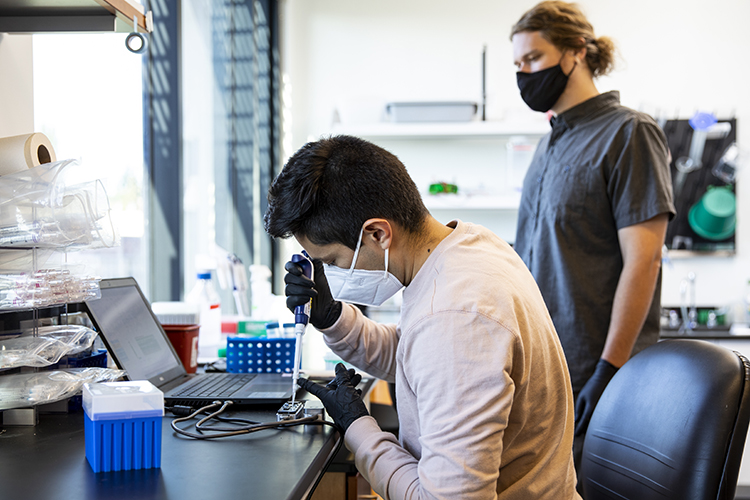
The research team, which includes MolE graduate student Nicolas Cardozo, introduce a new class of reporter proteins that can be directly read by a commercially available nanopore sensing device. The new system "• dubbed "Nanopore-addressable protein Tags Engineered as Reporters," also known as NanoporeTERs or NTERs for short "• can perform multiplexed detection of protein expression levels from bacterial and human cell cultures far beyond the capacity of existing techniques.

The funding will be used to develop scalable, cell-free platforms that enable the capture and conversion of carbon dioxide into industrial chemicals, providing manufacturers with a cheaper, more efficient and sustainable means of chemical production.

In this piece for The Conversation, bioengineering professor Albert Folch describes how microfluidic devices use the strange behavior of fluids in tiny spaces to impact medicine, science and the modern world.

Bioengineering startup AltPep advances technology for the early detection and treatment of Alzheimer's and other amyloid diseases.
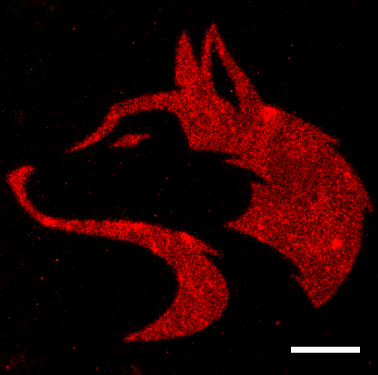
MolES faculty member Cole DeForest and colleagues have developed a technique to modify naturally occurring biological polymers with protein-based biochemical messages that affect cell behavior. Their approach, published in the Proceedings of the National Academy of Sciences, uses a near-infrared laser to trigger chemical adhesion of protein messages to a scaffold made from biological polymers such as collagen, a connective tissue found throughout our bodies.